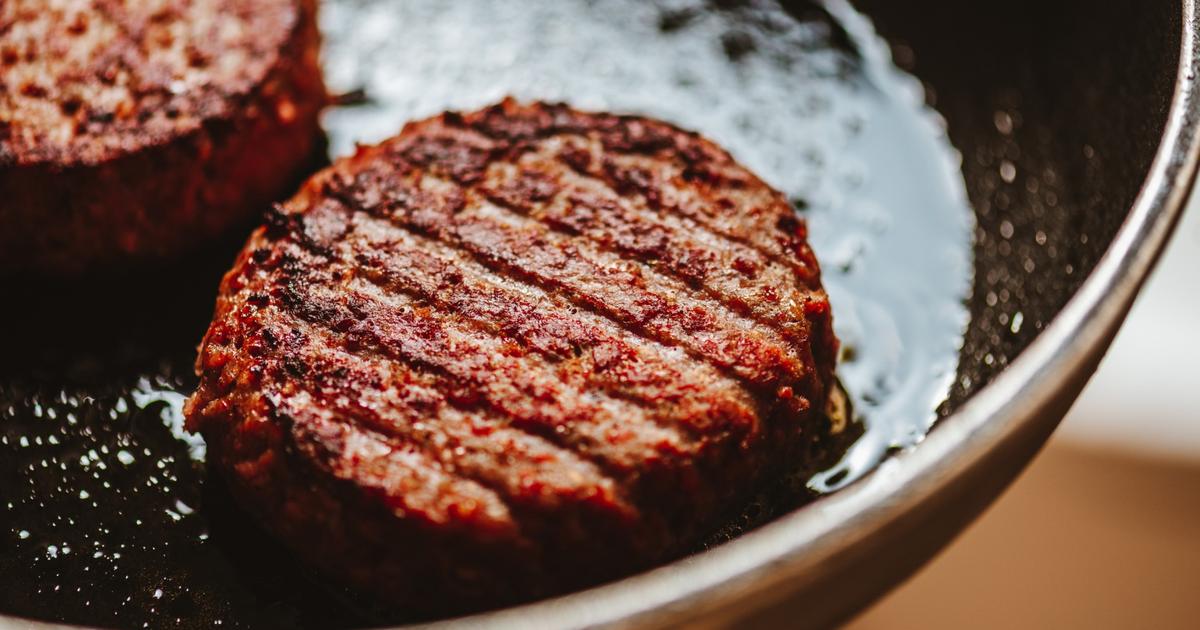It is one of the most promising and probably the most controversial agri-food markets.
Vegetable or imitation meat substitutes, these preparations which try to imitate the texture and flavor of animal meat, are on the rise on our plates, haloed with benevolent intentions such as preserving our planet and the well-being of everyone who lives there.
While the name “vegetable steak” is threatened with disappearing from packaging, our colleagues of
60 million consumers
have screened around twenty references of vegetable steaks and patties.
Their conclusions were revealed in their September 2022 issue (1), available on newsstands since Thursday, August 25.
Read alsoAre vegan ice cream lighter?
Difficult-to-digest proteins
Is a soy steak really the plant-based protein counterpart of the ribeye?
Judging by the rates indicated on the labels of imitation meat – 16 g per 100 g for imitation steak -,
60 million consumers
confirm this good intake, even if it is less on the side of patties, which favor fibers.
On the podium of this ranking, we find the Végétal Le Gaulois, a soybean steak, and the Organic chickpea and spiced grape galette from Sojasun.
On the other hand, one should not be demanding on the nature of these proteins, nuances the magazine.
To make them palatable, the latter, derived from soy, gluten or legumes, are subject to “ultra-processing”, which can “reduce their digestibility”, note our colleagues.
In video, five essential tips for new vegetarians
Excess fat and salt
To improve the texture, manufacturers do not skimp on fat intake either.
Sunflower or rapeseed oil, we find no less than 12% fat on the steak side against 8% for the patties.
The famous Beyond Burger from Beyond Meat is also pinned with 19 g of fat intake.
After analysis, the salt is also found in excess, to compensate for a taste quality that is not always there, reports the media.
Thus, we find a rate of 1.1 g on average for imitation steaks and 1 g for pancakes, or one-fifth of the daily intake recommended by the WHO.
"It's too much", conclude our colleagues.
Additives and pesticides
And this is far from the main questionable ingredients of these vegetable substitutes.
Steak or pancake, each of the references finally contains a list of ingredients “as long as the arm”, deplores the magazine, including a certain number of undesirable additives.
Among the most frequent, we find methylcellulose (E461), “a thickener whose excessive consumption can cause intestinal discomfort”, reports
60 million consumers
.
Read alsoTips for reading food labels and ingesting fewer additives
Even more worrying, the analysis shows that more than half of the vegetable steaks in the panel contain at least one pesticide residue.
Certain references of steaks and pancakes (Céréal Bio, Herta steak soya and wheat and pancake wheat and lupine Sojasun) indeed contain molecules with neurotoxic action like pyrethroids.
What cut us off, it must be admitted, a little hunger.
Or invite us to turn more to homemade alternatives.
(1) The full survey of 60 million consumers can be found in issue 583, “Plant substitutes: they more or less replace meat”, on newsstands August 25, 2022.

